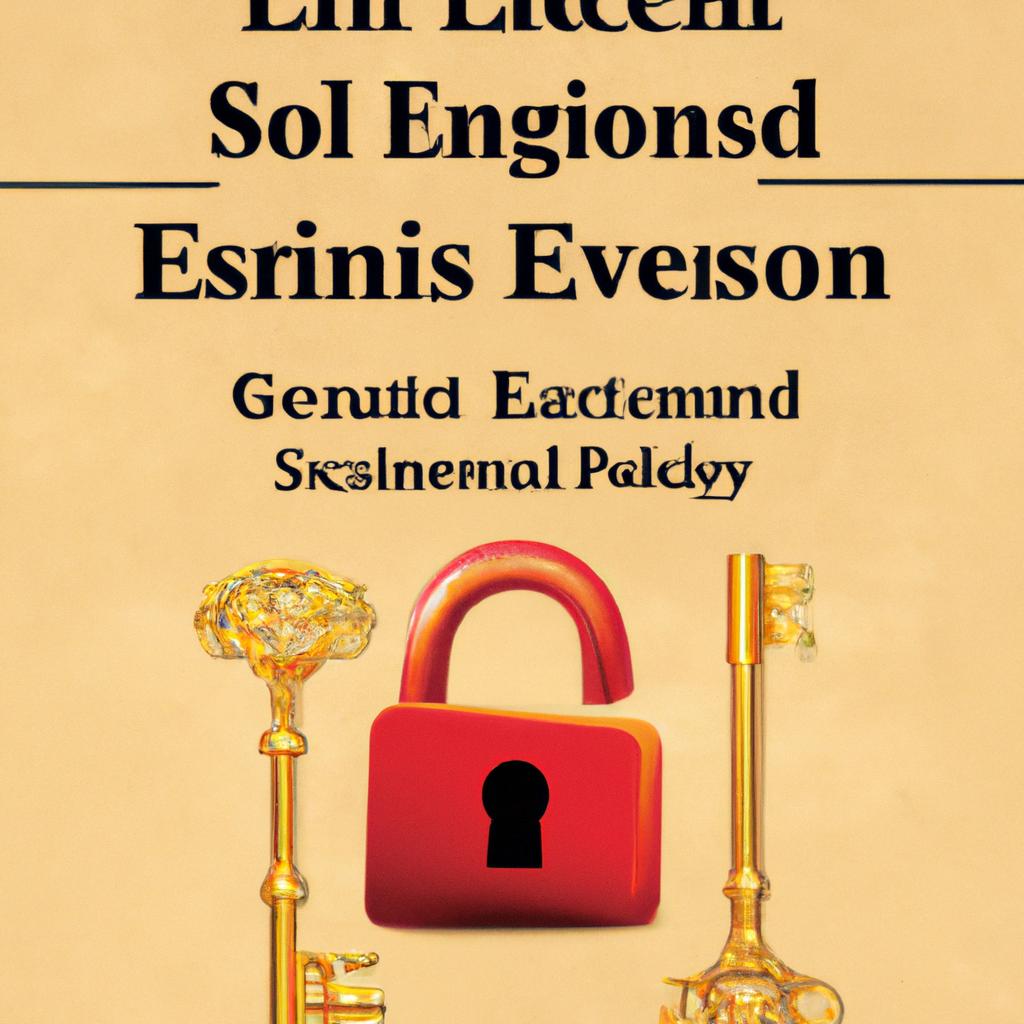Establishing an estate account is a pivotal part of handling the financial matters of a deceased person. A critical component of this process is securing an Employer Identification Number (EIN) from the Internal Revenue Service (IRS). This article will guide you through the process of acquiring an EIN for an estate account, facilitating a smooth transition in managing the estate’s financial affairs.
Grasping the Significance of an EIN for an Estate Account
An Employer Identification Number (EIN) is a unique nine-digit number issued by the IRS to identify a business entity. However, EINs are not exclusive to businesses – they are also required for estate accounts. This is vital for executors or administrators overseeing the financial matters of a deceased person.
Securing an EIN is a crucial step when establishing an estate account. An EIN identifies the estate as a distinct legal entity, enabling proper tax reporting and financial transactions. Without an EIN, the estate cannot open a bank account or file taxes, making it imperative to apply for one promptly.
To secure an EIN for an estate account, you can complete Form SS-4 online or by mail with the Step-by-Step Guide to Securing an EIN
Securing an EIN for an estate account is a vital part of managing the financial affairs of a deceased person. Follow these straightforward steps to secure an EIN for an estate account:
Assemble Your Information:
- Gather the necessary information, such as the deceased person’s name, address, and Social Security number.
- Compile details about the estate, including the executor’s name and address.
Fill Out the Online Application:
- Go to the IRS website and navigate to the EIN online application.
- Complete the required fields with the information gathered in step 1.
- Submit the application online and receive your EIN immediately.
Key Points to Consider When Securing an EIN for an Estate Account
When securing an EIN for an estate account, there are several important points to consider. It’s vital to ensure that you have all the necessary documentation and information ready before starting the application process. Here are some key factors to consider:
- Ensure you have the legal authority to apply for an EIN on behalf of the estate.
- Verify that you have the correct legal name of the estate, as well as the responsible party’s name and social security number.
- Ensure that you have a valid mailing address for the estate, as this is where the IRS will send all correspondence regarding the EIN.
Additionally, it’s important to be aware of any specific requirements or restrictions that may apply to securing an EIN for an estate account. This could include providing additional documentation or meeting certain criteria. By being prepared and informed, you can streamline the process and ensure that you secure the EIN successfully for the estate account.
Advice for Staying Compliant with IRS Regulations
Having an Employer Identification Number (EIN) is essential for estate accounts to ensure compliance with IRS regulations. To secure an EIN for an estate account, follow these steps:
1. Assemble required information: You will need details such as the name of the deceased person, executor’s name, Social Security Number (SSN) of the executor, and the estate’s address.
2. Fill Out Form SS-4: Complete Form SS-4, Application for Employer Identification Number, providing accurate information about the estate and the executor.
3. Submit the form: Once completed, submit the Form SS-4 to the IRS. This can be done online, by mail, fax, or phone, depending on your preference.
4. Keep records: After receiving the EIN, ensure you keep records of the number for future reference and tax purposes.
By following these steps, you can easily secure an EIN for an estate account and stay compliant with IRS regulations.
Conclusion
With these steps and guidelines, you can easily secure an EIN for an estate account and ensure smooth management of the assets and affairs of the deceased. Remember, it is important to follow all legal procedures and requirements to avoid any complications in the future. If you have any questions or need further assistance, don’t hesitate to consult with a tax professional or legal advisor. Best of luck with setting up your estate account and may the process be as smooth as possible. Thank you for reading!

Unlocking the Secrets: A Step-by-Step Guide to Obtaining an EIN for Your Estate Account
Whether you’re managing the estate of a deceased loved one or setting up a trust for your own assets, obtaining an Employer Identification Number (EIN) is a crucial step in establishing your estate account. An EIN is a unique nine-digit number assigned by the Internal Revenue Service (IRS) to identify businesses and entities for tax purposes.
Why Do You Need an EIN for Your Estate Account?
Having an EIN for your estate account offers several benefits, including:
- Separating your personal finances from your estate finances
- Facilitating tax reporting and compliance
- Opening a bank account or applying for credit in your estate’s name
Practical Tips for Obtaining an EIN for Your Estate Account
Follow these steps to obtain an EIN for your estate account:
- Determine Your Eligibility: Only estates with income generated after the decedent’s death require an EIN. If the estate earns income, you will need an EIN to report it to the IRS.
- Prepare the Necessary Information: Gather the following information before applying for an EIN: the name and address of the estate, the decedent’s Social Security number, and the executor’s information.
- Submit Your Application: You can apply for an EIN online, by mail, fax, or phone. The fastest and easiest way is to apply online through the IRS website.
- Receive Your EIN: Once your application is processed, the IRS will issue your EIN immediately. Keep this number safe and use it for all tax-related activities for your estate.
Case Study: John’s Experience Obtaining an EIN for His Estate Account
John recently inherited his father’s estate, which included various assets and investments. In order to manage the estate’s finances and fulfill tax obligations, John needed to obtain an EIN for the estate account. He followed the steps outlined above and successfully obtained an EIN through the IRS website. Having an EIN made it easier for John to separate his personal finances from the estate’s finances and ensure compliance with tax laws.
Benefits of Having an EIN for Your Estate Account
Having an EIN for your estate account offers the following benefits:
| Benefit | Description |
|---|---|
| Legal Separation | An EIN helps separate your personal finances from your estate finances, reducing personal liability. |
| Tax Compliance | An EIN makes it easier to report estate income and pay taxes accurately and on time. |
| Financial Transactions | An EIN allows you to open a bank account or apply for credit in your estate’s name. |
obtaining an EIN for your estate account is a straightforward process that can offer significant benefits in managing your estate’s finances. By following the step-by-step guide outlined in this article, you can easily navigate the EIN application process and ensure compliance with tax laws.


